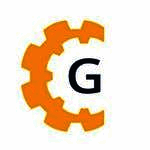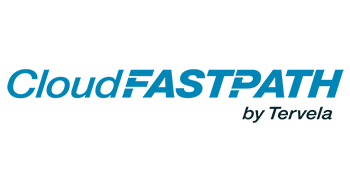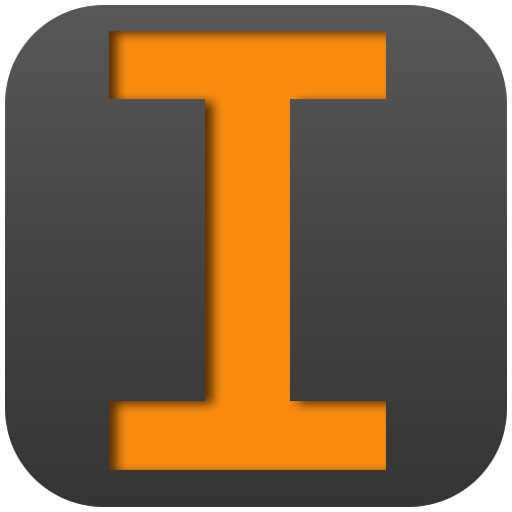Description

SugarSync

Dell Avamar
Comprehensive Overview: SugarSync vs Dell Avamar
SugarSync
a) Primary Functions and Target Markets
Primary Functions:
SugarSync is a cloud-based file synchronization and backup service that allows users to access, share, and manage files across multiple devices. Key functions include automatic file synchronization, real-time backup, versioning, file sharing, and remote access to data. It focuses on providing seamless access to documents, photos, and media files from any internet-enabled device.
Target Markets:
SugarSync primarily targets individual users, small to medium-sized businesses, and enterprises seeking efficient cloud storage solutions. Its features attract users who need robust data access and synchronization capabilities, offering plans suitable for both personal and business use.
b) Market Share and User Base
As of the latest data, SugarSync holds a relatively small share of the highly competitive cloud storage market. It faces tough competition from larger and more established players like Google Drive, Dropbox, and Microsoft OneDrive. Despite this, SugarSync has established a niche customer base that values its synchronization capabilities and ease of use.
c) Key Differentiating Factors
- Real-Time Synchronization: SugarSync offers real-time file synchronization, which is appealing to users requiring immediate updates across devices.
- Flexibility in Syncing: Users can choose specific files and folders to sync rather than being limited to a single designated folder.
- User Interface: It is known for its user-friendly interface that simplifies the process of managing and sharing files.
- Security: Offers robust security features, including encrypted data transfer and storage.
Dell Avamar
a) Primary Functions and Target Markets
Primary Functions:
Dell Avamar is an enterprise-grade backup and recovery software that specializes in data deduplication. It provides fast, daily full backups of virtual environments, applications, servers, and desktops with high-speed recovery. Key functions include efficient data deduplication, backup, restore, and encryption capabilities, designed to minimize backup windows and storage requirements.
Target Markets:
Dell Avamar is targeted primarily at large enterprises and organizations with complex IT infrastructures that require reliable, scalable, and efficient data protection solutions. It is particularly popular in industries that handle large volumes of data, such as finance, healthcare, and technology.
b) Market Share and User Base
Dell Avamar is a well-recognized name in the enterprise data protection market with a significant share among large organizations and enterprises. With the backing of Dell Technologies, it competes with other major players like Veeam, Commvault, and Veritas in the enterprise segment. Its user base predominantly consists of large organizations with extensive data protection needs.
c) Key Differentiating Factors
- Data Deduplication: Avamar’s source-side data deduplication significantly reduces the amount of data transferred during backup operations, leading to lower bandwidth and storage costs.
- Scalability: Offers scalable solutions that can handle large datasets efficiently, making it ideal for enterprise-level applications.
- Integration with Other Dell EMC Products: Seamless integration with other Dell EMC products enhances its data protection capabilities and management.
- Strong Data Security: It provides comprehensive security features, including encryption and multi-factor authentication.
Comparison
While both SugarSync and Dell Avamar are involved in data management, they cater to different market needs. SugarSync is more focused on individual and small business users looking for cloud storage and synchronization, while Dell Avamar serves large enterprises needing robust backup and recovery solutions with advanced data deduplication. Each product has unique differentiating features that suit different user requirements and organizational scales.
Contact Info

Year founded :
2004
+1 650-356-6200
Not Available
United States
http://www.linkedin.com/company/sugarsync

Year founded :
Not Available
Not Available
Not Available
Not Available
Not Available
Feature Similarity Breakdown: SugarSync, Dell Avamar
When comparing SugarSync and Dell Avamar, it's key to understand their primary functions and target user bases, as these differences significantly guide their feature sets. SugarSync is primarily a cloud-based file syncing and sharing service aimed at individual users and small businesses, while Dell Avamar is an enterprise-level backup and recovery solution. Given these distinct purposes, they have some overlapping features, but also many unique elements.
a) Core Features in Common:
- Data Backup: Both SugarSync and Dell Avamar offer data backup capabilities. SugarSync provides continuous and real-time backup of files across devices for individual users, while Avamar offers comprehensive backup solutions designed for enterprise environments.
- Cloud Storage: Both platforms utilize cloud storage. SugarSync is inherently a cloud service meant for file storage and syncing, whereas Avamar backs up data to a cloud or on-premises data store, allowing for flexible storage options.
- Version Control: Both solutions offer version history to restore previous versions of files or data -- SugarSync allows tracking of file changes and restoring older versions, while Avamar provides extensive version control as part of its backup management system.
b) User Interface Comparison:
- SugarSync: Designed with end-users in mind, its interface is typically more user-friendly and intuitive, focusing on easy navigation for file syncing, sharing, and access across devices. It emphasizes quick access and simplicity.
- Dell Avamar: Its interface is more complex, reflecting its enterprise focus. It caters to IT professionals and administrators, featuring more detailed options and settings for configuring backups, managing data stores, and monitoring systems.
c) Unique Features Setting One Product Apart:
-
SugarSync Unique Features:
- File Syncing Across Devices: Beyond traditional backup, SugarSync emphasizes real-time file syncing across multiple devices, ensuring users have up-to-date access to their files anywhere.
- Collaboration Tools: Designed with collaboration in mind, SugarSync allows users to share files and folders with others, with varying levels of permissions.
- Easier Consumer Access: Targeting individual and small business users, SugarSync's ease of use and accessibility on mobile devices make it ideal for non-technical users.
-
Dell Avamar Unique Features:
- Enterprise-Grade Deduplication: Avamar is known for its global data deduplication capabilities, reducing the amount of storage needed and improving backup efficiency across large data sets.
- Integration with Enterprise Infrastructure: Avamar integrates with various enterprise environments, such as VMware and Microsoft applications, providing robust support for virtual environments and complex infrastructures.
- Advanced Security Features: With features like encryption and secure multi-tenant storage environments, Avamar offers security solutions suitable for large enterprises needing stringent data protection measures.
In summary, while SugarSync and Dell Avamar share some basic backup and storage functionality, they cater to different segments—individual users and small businesses versus large enterprises. This leads to distinct interface designs and some unique features tailored to their respective user bases.
Features

Not Available

Not Available
Best Fit Use Cases: SugarSync, Dell Avamar
SugarSync
a) Best Fit Use Cases for SugarSync:
-
Individual Users and Small Businesses:
- SugarSync is ideal for individual users and small businesses needing a simple, easy-to-use cloud storage solution for file backup and synchronization across multiple devices.
- It is particularly suited for businesses that require flexibility in accessing files from different locations or devices, such as freelancers, small creative agencies, or remote work teams.
-
Mobile and Remote Teams:
- With robust mobile support, SugarSync is excellent for businesses with a mobile workforce or those needing access to files on the go.
- Its capability to sync files in real time is beneficial for teams collaborating remotely, ensuring seamless access to the most up-to-date documents.
-
Project-based Work Environments:
- Companies that work on project-based assignments can benefit from SugarSync’s synchronization and sharing features, allowing easy collaboration among team members and clients.
d) Industries and Company Sizes:
- Industries:
- SugarSync is versatile for industries like marketing, design, consulting, and any field where agile collaboration and file accessibility are critical.
- Company Sizes:
- Primarily advantageous for individuals, freelancers, and small businesses. It can also serve as a supplementary tool for larger organizations needing specific features like mobile access and simple sharing options.
Dell Avamar
b) Best Fit Use Cases for Dell Avamar:
-
Medium to Large Enterprises:
- Dell Avamar is optimized for medium to large enterprises with extensive data protection needs. It’s particularly suitable for environments with heavy data loads and complex infrastructure.
-
Virtualized and Diverse IT Environments:
- Ideal for businesses with highly virtualized environments or a mix of physical and virtual servers. Its deduplication technology helps optimize storage efficiency and manage backup and recovery processes effectively.
-
Businesses with Strict Compliance and Security Needs:
- Companies in sectors like healthcare, finance, or any industry with stringent regulatory requirements would benefit from Avamar’s robust encryption, secure data protection, and compliance features.
-
Organizations Needing Efficient Disaster Recovery:
- Avamar’s scalable and reliable backup and recovery solutions make it a preferred option for businesses needing dependable disaster recovery capabilities.
d) Industries and Company Sizes:
- Industries:
- Particularly beneficial for industries like healthcare, finance, manufacturing, and government that require top-tier data integrity, security, and compliance.
- Company Sizes:
- Tailored for medium to large enterprises and organizations with complex, multi-site operations. It’s also suitable for institutions that have stringent data governance and disaster recovery mandates.
In summary, while SugarSync caters mainly to smaller outfits and mobile teams in industries requiring high agility and simplicity, Dell Avamar serves larger enterprises across various sectors that require advanced data management, security, and compliance capabilities.
Pricing

Pricing Not Available

Pricing Not Available
Metrics History
Metrics History
Comparing teamSize across companies
Conclusion & Final Verdict: SugarSync vs Dell Avamar
When comparing SugarSync and Dell Avamar, it's important to understand that these two products serve different primary purposes, and your choice will heavily depend on your specific needs.
Conclusion and Final Verdict:
a) Considering all factors, which product offers the best overall value?
Best Overall Value: This depends on what your requirements are. If you're looking for a straightforward and user-friendly cloud storage solution aimed at personal and business users for file syncing and sharing, SugarSync offers excellent value. It's simple to use, integrates well with various platforms, and is generally suitable for small to medium businesses and personal use.
However, if enterprise-level data protection, sophisticated backup features, and disaster recovery are your main priorities, Dell Avamar is the better choice. It's designed for robust data management and protection, providing high-performance data deduplication and comprehensive backup solutions for businesses with complex data management needs.
b) Pros and Cons of Choosing Each Product:
SugarSync:
- Pros:
- Easy to use with intuitive interface.
- Offers real-time backup and synchronization across multiple devices.
- Flexible file sharing capabilities.
- Compatible with various devices (PC, Mac, Android, iOS).
- Cons:
- Limited in terms of enterprise-grade backup solutions.
- Lacks the advanced data protection features.
- Storage plans can become expensive as you scale.
Dell Avamar:
-
Pros:
- Highly efficient data deduplication technology reduces storage costs and bandwidth utilization.
- Comprehensive backup and recovery system suitable for enterprise needs.
- Robust security and compliance features.
- Capable of managing complex data environments and large datasets.
-
Cons:
- More complex and requires more technical expertise to implement and manage.
- Higher cost, often justified by its extensive, enterprise-level capabilities.
- Primarily designed for businesses, less suitable for individuals or small-scale operations.
c) Specific Recommendations:
-
For Individual Users and Small Businesses: SugarSync is ideally suited to those who need a simple yet effective solution to keep their files synchronized and accessible across multiple devices. It offers enough features to maintain basic data management without the complexity and cost of an enterprise-level system.
-
For Medium to Large Businesses: Dell Avamar is recommended for those who require a robust, scalable backup and recovery solution with advanced data protection features. It's particularly beneficial for organizations dealing with large volumes of data and needing compliance with stringent data protection regulations.
-
Hybrid Users: If your needs cross both domains, consider integrating solutions where SugarSync handles synchronization while Avamar manages comprehensive backup and disaster recovery for critical business data.
Ultimately, users need to assess their specific requirements, technical capacity, and budget constraints to determine which solution offers the best balanced value according to their unique context.
Add to compare
Add similar companies



